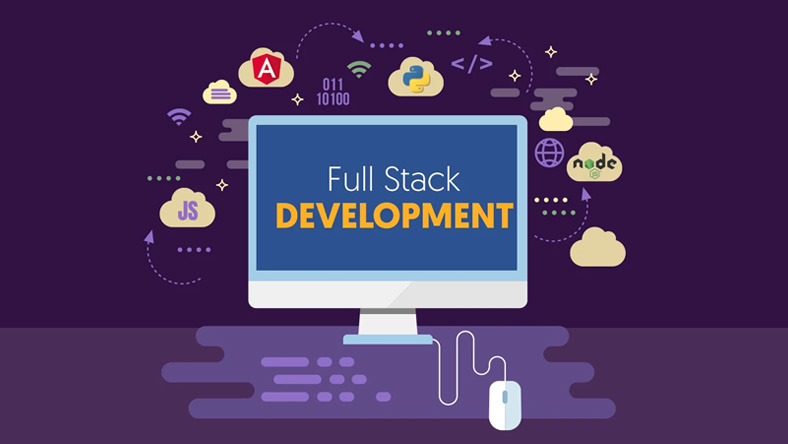Full Stack Developer

Contact Form
Overview
Students Prerequisites
Course Curriculum
Duration of the Course
Instructor Profile
Overview
Full Stack MEAN Developer program provides complete knowledge of software development and testing technologies such as JavaScript, Node.js, Angular, Docker, and Protractor. You’ll build an end-to-end application, test and deploy code, and store data using MongoDB. Full Stack Web Development is nothing but complete designing of both websites and applications where the developers need to work from frontend to backend development
Students Prerequisites
- Basic Knowledge of Programming is enough
Course Curriculum
Module 1: Introduction to Full Stack Development
- Overview of Frontend, Backend, and Database
- Roles and Responsibilities of a Full Stack Developer
- Tools and Technologies Overview
- Project Lifecycle and Agile Development Basics
Module 2: Frontend Development
HTML & CSS
- HTML Structure, Elements, and Attributes
- Semantic HTML
- CSS Basics: Selectors, Properties, and Units
- Responsive Design with Media Queries
- CSS Frameworks (Bootstrap, Tailwind CSS)
- Flexbox and Grid Layouts
JavaScript (JS)
- Basics: Variables, Data Types, and Operators
- Control Structures: Loops and Conditions
- DOM Manipulation and Events
- ES6 Features: Let/Const, Arrow Functions, Promises, and Modules
- Working with APIs (Fetch, Axios)
Frontend Frameworks
- React.js
- Components, Props, and State
- Lifecycle Methods and Hooks
- Router and Single Page Applications (SPA)
- State Management with Redux/Context API
- Alternative Frameworks (Optional):
- Angular or Vue.js (Basic Overview)
Module 3: Backend Development
Backend Fundamentals
- What is a Server? Overview of Server-Side Programming
- RESTful APIs: Concepts and Implementation
- Authentication and Authorization (JWT, OAuth)
Node.js
- Setting up Node.js Environment
- Core Modules: FS, Path, HTTP
- Express.js Framework
- Routes and Middleware
- Handling Requests and Responses
- Error Handling
Database Integration
- Connecting to Databases (MySQL, MongoDB)
- CRUD Operations
- ORM/ODM (Sequelize, Mongoose)
Building RESTful APIs
- API Design Best Practices
- Testing APIs with Postman
- Securing APIs (Rate Limiting, Input Validation)
Module 4: Databases
Relational Databases (SQL)
- Database Basics: Tables, Rows, Columns
- SQL Queries: SELECT, INSERT, UPDATE, DELETE
- Joins, Subqueries, and Indexing
- Database Normalization
Non-Relational Databases (NoSQL)
- Introduction to NoSQL
- MongoDB Basics: Collections, Documents
- Aggregation Framework
- Schema Design in MongoDB
Module 5: Full Stack Integration
- Connecting Frontend to Backend
- Asynchronous Programming: Callbacks, Promises, and Async/Await
- Deployment Ready Code
Module 6: DevOps & Deployment
- Version Control with Git/GitHub
- CI/CD Basics
- Containerization with Docker (Basics)
- Deploying Applications on:
- Heroku
- AWS/GCP/Azure
Module 7: Advanced Topics
Authentication
- User Authentication: Login/Signup
- Secure Password Storage (Hashing, Salting)
- OAuth and Social Login Integration
Websockets
- Real-Time Applications with Socket.io
Testing
- Unit Testing (Jest, Mocha)
- End-to-End Testing
Performance Optimization
- Frontend Optimization (Lazy Loading, Caching)
- Backend Optimization (Load Balancing, Caching)
Module 8: Building Full Stack Applications
- Project Setup and Planning
- Multi-Page Applications
- CRUD Application Development
- Real-Time Applications (Chat Apps)
- Team Collaboration with Git
Module 9: Capstone Project
- Choose a domain (e.g., e-commerce, blogging platform, social media)
- End-to-End Development
- Presenting and Deploying the Project
Duration of the Course
40 Days (also available fast track course with short term duration)
- Flexible Schedules
- Live Online Training
Instructor Profile
- Training by highly experienced and certified professionals
- No slideshow (PPT) training, fully Hand-on training
- Interactive session with interview QA’s
- Real-time projects scenarios & Certification Help
- 24 X 7 Support
